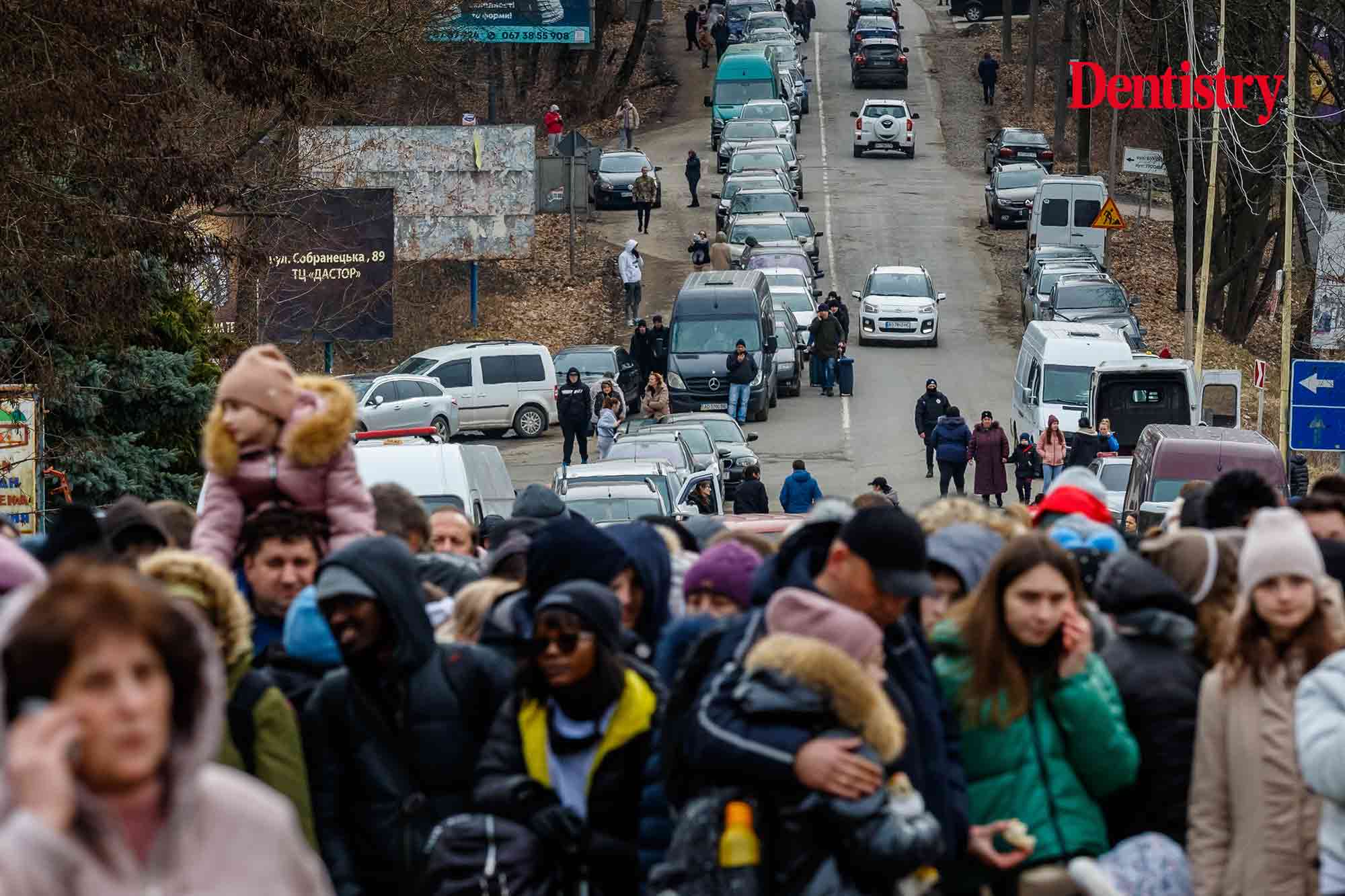 A family of Ukrainian dentists have described the ‘sad’ realities of passing the overseas registration exam in order to practise dentistry in the UK.
A family of Ukrainian dentists have described the ‘sad’ realities of passing the overseas registration exam in order to practise dentistry in the UK.
Anastasiia Saviska fled Ukraine with her family following the onset of the Russia-Ukraine war earlier this year.
They now live in County Down, Northern Ireland, with a host family, reports the BBC. Although keen to put their clinical skills to work, Anastasiia says she may have to wait ‘years’ before she is back in the practice.
‘My journey was not easy. But now we are here, I want to help people,’ she says.
‘I was a dentist in Ukraine and my husband and father are dentists too. My father had his own practice. I know about some difficulties with my qualification here because I understand I must pass some exams.’
‘But now I know it’s a long process – there’s a long list for waiting, it’s years.’
Breaking point
She adds: ‘I read about how people are waiting for help. For me, it’s very sad because I can help. But I can’t do this now.’
This comes as a BBC investigation reveals nine in 10 NHS dental practices are not accepting new adult patients.
Dubbed ‘the most extensive survey of patient access ever undertaken’ by the BDA, eight in 10 are also not taking on new children.
The association also called for the government to ‘stop rearranging the deckchairs’ and urgently commit to a ‘fair funding settlement’.
Dentistry’s top stories
- NHS dentistry at breaking point, BBC study reveals
- GDC publishes ethnicity data for the first time
- Losing my virginity – what I learnt on a business trip with Richard Branson
- How rising interest rates will affect dentists
- ‘I feel your pain’: Rishi Sunak on his seven fillings and plans to reform dentistry.
‘Incredibly frustrating’
Suzanne Johnston is part of the household acting as Anastasiia’s host family. She said the pressing need for NHS dentists makes the realities for Ukrainian dentists ‘incredibly frustrating’.
‘They’re just such a joy to get to know. They’ve been a great addition to our household,’ she adds.
‘As a host family, I started to do some research to see how to get them working as dentists here.
‘Obviously, you want to make sure that, for a dental practitioner, their level of skill is up to what is required in this country.
‘It was quite shocking to find out that these checks can take up to three years. You see the need for NHS dentists and it’s incredibly frustrating that I have three dentists living in my house who won’t be able to practise dentistry in Northern Ireland for another three years yet.
‘They want to work and they want to use their clinical skills.’
GDC response
A spokesperson for the General Dental Council (GDC) said: ‘We understand that, for refugee dentists arriving in the UK, one of the first things they may wish to arrange is their ability to work in their profession. Maintaining public safety and confidence in dental services though remains our primary purpose.
‘What this means for those with qualifications from outside of the EEA is that we need to ensure they meet the same rigorous standards set for those qualifying in the UK, and this is done though passing a recognised exam.
‘The GDC runs one of those exams – the Overseas Registration Exam (ORE) – which reopened earlier this year after being suspended for almost two years due to Covid-19. That suspension has increased the current demand for exam places.
‘We are working through that. But the exam is also subject to outdated and inflexible legislation which effectively prevents us from offering more places. The government is in the process of reforming that legislation and we look forward to being able to run a more efficient system in future.’
Follow Dentistry.co.uk on Instagram to keep up with all the latest dental news and trends.


